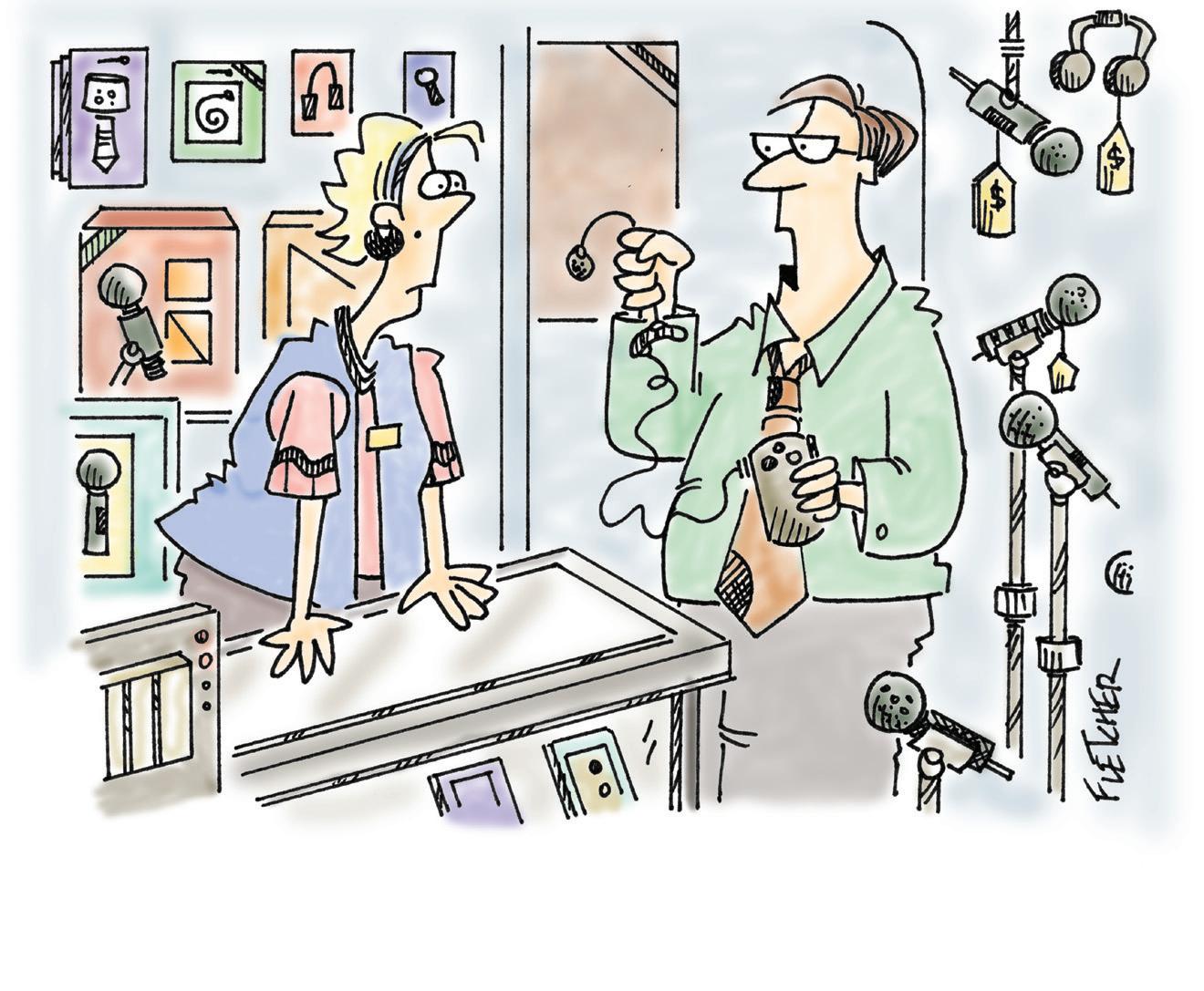
3 minute read
GROWING
Time alone with God
Meet The Team
Advertisement
Does your devotional life measure up?
Scott Foshie
Hometown: Greeneville, Tenn., also the home of President Andrew Johnson (Lincoln’s VP)
Family deets: My wife, Audra, and I met in college while singing in a jazz group together. Married 21 years, we have three children, ages 11 to 16.
Education: Bachelor of Music Ed. from East Tenn. State U., Master of Theological Studies from Midwestern Seminary, M. Div. and D. Min. from Southern Baptist School for Biblical Studies
Ministry background: Worship, youth, evangelism, and education; then as lead pastor at Steeleville Baptist and Associational Missionary for Nine Mile Baptist Association.

Life verse: “I am the vine; you are the branches. The one who remains in me and I in him produces much fruit, because you can do nothing without me” (John 15:5).
My favorite Bible person: Daniel. He confronted some very lost, wayward people who needed God while never failing to treat them with love and respect.
Illinois discovery: Overlooking the Mississippi River from Fort Kaskaskia. (The Popeye statues and museum are in nearby Chester.)
Ice cream of choice: Strawberry Cheesecake or Salted Caramel
Authors: Henry & Richard Blackaby
Character: Jack Ryan in the movies based on Tom Clancy novels.
A quote I find myself saying often: Nate Adams shared this from former Lifeway CEO Jimmy Draper. “What are you doing today to serve the churches?” It is a perfect reminder as we serve IBSA churches.
Early in the year when many people have started new Bible reading plans and devotional routines, it’s a good time to ask if we’re accomplishing a larger goal: time alone with God. A new Lifeway Research survey shows a majority of Protestant churchgoers spend time alone with God at least daily, but there’s a range in what they do in that time and which resources they use.
In a survey of 1,002 people who attend church at least once per month, 65% intentionally reserve time alone with God every day— 44% saying daily and 21% saying more than once a day.
“We see a pattern in Scripture of followers of God withdrawing to spend time alone with Him. Jesus Christ Himself also did this,” said Scott McConnell, executive director of Lifeway Research.
“Most Protestant churchgoers continue this relational interaction with God and use a variety of resources as they do.”
This time looks different for different churchgoers, but they are more likely to talk to God through prayer than to listen to him through his Word. Churchgoers most often pray in their own words (83%), thank God (80%), praise God (62%) or confess sins (49%).
Noteworthy, however, is that fewer than 2-in-5 said they read from the Bible or a devotional (39%).
When it comes to spending time alone with God, females are more likely than males to say this is a daily habit for them (49% compared to 38%).
Southerners are more likely to report daily alone time (49%) that in other regions. And Baptists are most likely to say they have more than one alone time per day (25%).
When spending time alone with God, some prefer to pray in their own words, while others would rather repeat a set prayer.
Younger churchgoers are more likely to prefer reading prayers, while older people would rather pray in their own words. Generally, about one-third use written prayers (31% of those ages 18-34, for example) while two-thirds or more prefer to use their own words (highest among people over 65 at 89%).
“There are many reasons to pray a set prayer. Whether someone is praying the model prayer Jesus gave or repeating the same request to God each day, these can be meaningful,” McConnell said. “At the same time, Scripture also records Psalms and prayers within its narrative accounts that show how personal and forthright we can be when talking to God in our own words.”
Women (86%) are more likely than men (79%) to pray in their own words. And those in the South (86%) are more likely to pray in their own words than those in the Northeast (77%).
“An earlier discipleship study from Lifeway Research showed that praising and thanking God is one of the top five predictors of high spiritual maturity,” McConnell said. “This is a widespread practice among churchgoers when they are alone with God.”
The youngest adult churchgoers (ages 18-34) are the most likely to read Scripture from an app (40%) and the least likely to read from a devotional book that prints some Scripture (21%). “Today’s Christians have more resources than ever to aid them,” McConnell said. “But there is also a strong relationship between spending time alone with God’s Word and worshiping frequently with others who may encourage you in your walk with God.”
“This microphone is defective. My congregation is only hearing what they want to hear.”










